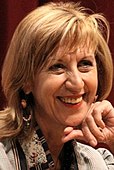
Back Eleccions al Parlament Europeu de 1999 (Espanya) Catalan Europawahl in Spanien 1999 German Elecciones al Parlamento Europeo de 1999 (España) Spanish Élections européennes de 1999 en Espagne French Elezioni europee del 1999 in Spagna Italian 1999年欧州議会議員選挙 (スペイン) Japanese Wybory do Parlamentu Europejskiego w Hiszpanii w 1999 roku Polish Eleições parlamentares europeias de 1999 (Espanha) Portuguese Alegeri pentru Parlamentul European în Spania, 1999 Romanian
| |||||||||||||||||||||||||||||||||||||||||||||||||||||||||||||||||||||||||||||||||||||||||||||||||||||||||||||
All 64 Spanish seats in the European Parliament | |||||||||||||||||||||||||||||||||||||||||||||||||||||||||||||||||||||||||||||||||||||||||||||||||||||||||||||
|---|---|---|---|---|---|---|---|---|---|---|---|---|---|---|---|---|---|---|---|---|---|---|---|---|---|---|---|---|---|---|---|---|---|---|---|---|---|---|---|---|---|---|---|---|---|---|---|---|---|---|---|---|---|---|---|---|---|---|---|---|---|---|---|---|---|---|---|---|---|---|---|---|---|---|---|---|---|---|---|---|---|---|---|---|---|---|---|---|---|---|---|---|---|---|---|---|---|---|---|---|---|---|---|---|---|---|---|---|---|
| Opinion polls | |||||||||||||||||||||||||||||||||||||||||||||||||||||||||||||||||||||||||||||||||||||||||||||||||||||||||||||
| Registered | 33,840,432 | ||||||||||||||||||||||||||||||||||||||||||||||||||||||||||||||||||||||||||||||||||||||||||||||||||||||||||||
| Turnout | 21,334,948 (63.0%) | ||||||||||||||||||||||||||||||||||||||||||||||||||||||||||||||||||||||||||||||||||||||||||||||||||||||||||||
| |||||||||||||||||||||||||||||||||||||||||||||||||||||||||||||||||||||||||||||||||||||||||||||||||||||||||||||
The 1999 European Parliament election in Spain was held on Sunday, 13 June 1999, as part of the EU-wide election to elect the 5th European Parliament. All 64 seats allocated to Spain as per the Treaty of Amsterdam were up for election. The election was held simultaneously with regional elections in thirteen autonomous communities and local elections all throughout Spain.
The ruling People's Party (PP)—which for the first time contested a nationwide election in Spain while in government—emerged as the largest political force in the country, albeit with a diminished victory margin than in the previous election held in 1994. The Spanish Socialist Workers' Party (PSOE), in opposition for the first time since 1982, recovered some ground from its previous result. Overall, the PP lead decreased from 9.3 to 4.4 percentage points, though this was an increase from the 1.2 points between both parties in the 1996 general election. United Left (IU) lost half of its votes and parliamentary representation amid internal divisions—Initiative for Catalonia (IC) and the New Left (NI) had split from the larger alliance in 1997—policy differences over their relationship with the PSOE and the deteriorating health condition of IU's maverick leader, Julio Anguita.
Cite error: There are <ref group=lower-alpha> tags or {{efn}} templates on this page, but the references will not show without a {{reflist|group=lower-alpha}} template or {{notelist}} template (see the help page).





